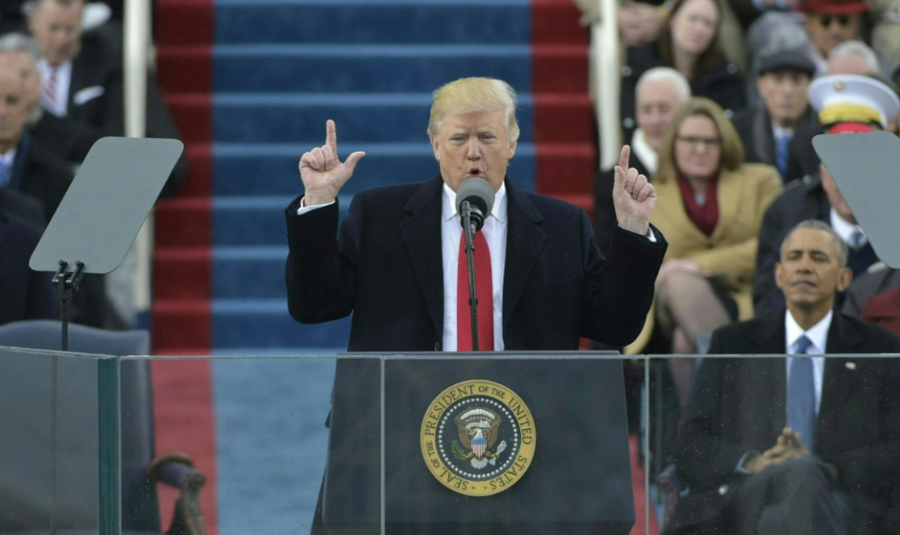
Donald Trump's guest list for his January 20 inauguration as US president appears to point to a new global order that leans toward right-wing populists, signaling the new political direction of his administration.
As Politico reports in its analysis, inaugurations are traditionally characterized by a national, local and festive character, attended mainly by American officials and diplomats from foreign countries. Thus, the invitation to heads of state is extremely rare. But Trump, true to his rhetoric against political traditions, has invited figures such as Argentine President Javier Millay, Vladimir Putin and Chinese President Xi Jinping, seeking to create international alliances of ideological affinity.
However, at the same time, the lack of invitations to certain people is indicative of his disposition.
European center-right and center-left leaders have been left out. European Commission President Ursula von der Leyen has not been invited, while several far-right and nationalist leaders have been invited. The list includes Nigel Farage, known for his anti-European rhetoric, French far-right writer and politician Eric Zemour, Belgian nationalist Tom Van Grieken and former Polish Prime Minister Mateusz Morawiecki, who has repeatedly clashed with Brussels over rule of law issues.
The presence of these individuals, according to Politico, reflects the political rightward turn that Trump is trying to dictate. Indicative is the presence of the Italian Prime Minister, Giorgia Meloni, who was invited and maintains friendly relations with Trump, despite her cooperation with the Biden administration within the framework of NATO and the G7. Meloni even traveled to Mar a Lago a few days ago, while Trump described her after the meeting as an "amazing woman."
Argentine President Javier Millay, who is described as a "titan of economic reform," has already confirmed his presence.
Hungarian Prime Minister Viktor Orbán, known for his pro-Russian stances, is also invited, but will not attend due to commitments.
The invitation to Chinese President Xi Jinping came as a surprise given the tensions in U.S.-China relations. But it signaled Trump's "willingness to have an open dialogue" with Xi, new press secretary Carolyn Levitt told Fox News last month.
It is also clear that he caught Chinese diplomats by surprise. Beijing's embassy in Washington has yet to confirm whether it has actually received a formal invitation for Xi to attend or whether Xi has responded. It is noted that Chinese leaders have never attended the inauguration of a foreign leader. But Xi clearly wants to send a message of goodwill to Trump by sending a high-ranking official to attend the event.
The Financial Times reported last week that candidates include Vice President Han Zheng and Foreign Minister Wang Yi.
The foreign ministers of India and Japan, as well as the presidents of El Salvador and Ecuador, are also expected to attend the ceremony. However, former Brazilian President Jair Bolsonaro will not be able to attend due to legal issues in his country.
In addition to politicians, the ceremony will feature prominent tech figures like Jeff Bezos and Mark Zuckerberg, as well as billionaire French entrepreneur Xavier Niel. Elon Musk will also be there, but he has an extra reason: he will now also hold a position in the Trump administration.
The leader of the far-right AfD party, Alice Weidel, has been invited from Germany, but she said she will not attend due to election commitments. It is not clear whether another AfD politician will take her place. However, Jurgen Hardt, the foreign policy spokesman for the conservative Christian Democratic Union, and Berlin's envoy to the US, Andreas Michaelis, will attend.
Spain will be represented by the leader of the far-right Vox party, Santiago Abascal, while Portugal will be represented by the leader of Chega, Andre Ventura. The French ambassador to Washington, Laurent Billy, will also be invited to attend.
In contrast, the invitation to Marine Le Pen and Jordan Bardella from France is missing. This is being interpreted as a sign of Trump's strategic choice to address those who have openly expressed their support for him. The absence of the President of the European Commission, combined with the invitation to the EU ambassador to the US, Iovita Neliovciene, demonstrates Trump's willingness to work directly with states rather than with European institutions.
So the inauguration is not simply a national event, but an international signal of the policy line that the new Trump administration intends to pursue, strengthening ties with nationalist leaders and bypassing traditional allies. (A2 Televizion)











